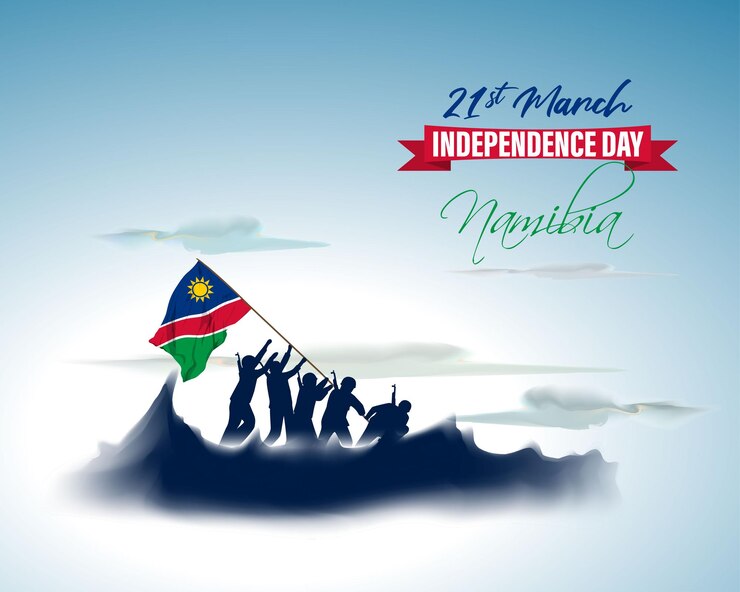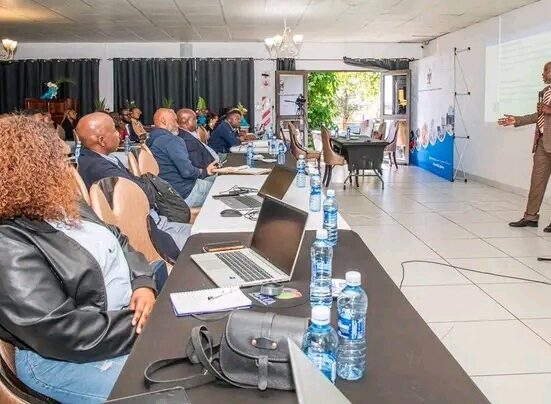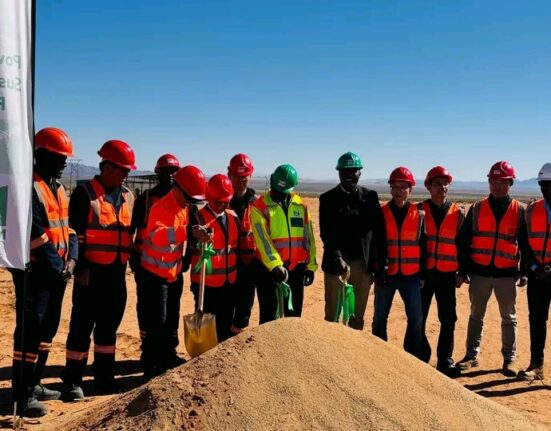On March 21, 1990, Namibia achieved a momentous milestone in its history: the day it officially gained independence from South Africa. After decades of struggle against colonialism, apartheid, and foreign occupation, Namibia’s path to freedom culminated in the establishment of a sovereign, democratic state. This historic day marked not just the birth of a new nation, but the conclusion of one of Africa’s most remarkable liberation movements. The independence of Namibia represented a victory for the people who had fought tirelessly for self-determination, justice, and equality, and it set the stage for a new chapter in the country’s history.
Historical Context: The Struggle for Independence
Namibia’s journey to independence was shaped by complex historical forces that included colonial domination, racial segregation, and protracted armed resistance. Originally a German colony known as German South West Africa, Namibia faced brutal exploitation and systemic violence at the hands of German colonial forces, particularly during the Herero and Nama Genocides from 1904 to 1908. After World War I, the country was handed over to South Africa as a League of Nations mandate, a move that extended South Africa’s racist apartheid policies to Namibia.
During the mid-20th century, Namibia’s indigenous people began to organize against South African rule. One of the most significant developments in the fight for independence was the formation of the South West Africa People’s Organization (SWAPO) in 1960. SWAPO became the primary liberation movement in Namibia, with its military wing, the People’s Liberation Army of Namibia (PLAN), engaging in a protracted guerrilla war against South African forces.
International support for Namibia’s independence was also crucial. The United Nations (UN) had long recognized Namibia as a non-self-governing territory, and it called for the termination of South Africa’s administration. In 1966, the UN General Assembly adopted Resolution 2145, which declared South Africa’s continued rule over Namibia illegal. The international community, particularly through the Organisation of African Unity (OAU), provided diplomatic and material support for Namibia’s liberation struggle.
Despite the diplomatic and military pressures, South Africa was determined to maintain its control over Namibia. It wasn’t until the late 1980s, with shifting international dynamics and the end of the Cold War, that a negotiated settlement became viable.
The Turning Point: The Tripartite Accord
The Tripartite Accord, signed in December 1988, was a critical turning point in Namibia’s journey to independence. This agreement, signed between South Africa, Angola, and Cuba, paved the way for Namibia’s transition to self-rule. The accord was part of a broader peace agreement that also led to the withdrawal of Cuban troops from Angola, ending the conflict that had engulfed the region for years.
The key provisions of the Tripartite Accord included South Africa agreeing to end its military occupation of Namibia, the establishment of a UN-supervised electoral process, and the commitment to hold free and fair elections. These agreements set the stage for Namibia’s first democratic elections, which were held in November 1989. SWAPO emerged as the dominant political force, with its leader, Sam Nujoma, poised to become the country’s first president.
The peaceful transfer of power in Namibia was a remarkable achievement, particularly in the context of the Cold War and the violent conflicts that had characterized many African independence struggles. The successful negotiations were a testament to the efforts of diplomats, international organizations, and local leaders committed to resolving the conflict.
March 21, 1990: The Day of Independence
March 21, 1990, was a day filled with pride, joy, and historical significance for the people of Namibia. The nation’s first official Independence Day ceremony took place in the capital city of Windhoek, where thousands of Namibians gathered to witness the historic occasion. The ceremony included an official handover of power from South Africa to Namibia, marking the end of over a century of colonial and apartheid rule.
The event was attended by international dignitaries and heads of state, including Nelson Mandela, the President of South Africa, Julius Nyerere of Tanzania, and the Secretary-General of the United Nations, Javier Pérez de Cuéllar. Sam Nujoma, who had been the leader of SWAPO during the liberation struggle, was sworn in as the first president of the newly independent Namibia. His speech reflected both the triumph of independence and the challenges that lay ahead for the nation.
In his inaugural address, Nujoma called for national unity and reconciliation, emphasizing the need for all Namibians—regardless of ethnicity, language, or political affiliation—to come together in the building of a free and prosperous nation. The celebration of Namibia’s independence was not only a moment of pride for Namibians but also an important milestone for Africa as a whole, symbolizing the end of colonial rule and the expansion of democracy on the continent.
The Role of International Support and Diplomacy
Namibia’s independence was the result of years of international diplomacy, advocacy, and solidarity. The role of the United Nations in Namibia’s independence struggle was critical, especially in challenging South Africa’s illegal occupation of the country. The UN imposed economic sanctions on South Africa and continuously called for Namibia’s decolonization. The involvement of the United States, Cuba, and the Soviet Union also played an important role in the diplomatic process that led to the Tripartite Accord and ultimately Namibia’s independence.
The Organisation of African Unity (OAU), which later became the African Union (AU), was also an essential supporter of Namibia’s liberation movement. The OAU not only provided political support but also coordinated efforts to offer military and logistical assistance to SWAPO. The Namibian people, under the leadership of SWAPO, received significant backing from various African countries, as well as socialist states like the Soviet Union and Cuba, which provided material support for the fight against apartheid.
The end of the Cold War and the shifting geopolitical landscape also played a key role in creating conditions conducive to a negotiated settlement. By the late 1980s, South Africa was facing growing international pressure and internal resistance to its apartheid policies, while SWAPO’s determination and military resilience made a negotiated solution more attractive.
The Significance of Namibia’s Independence
Namibia’s independence was not just a political achievement; it also symbolized the triumph of justice, peace, and unity over division and oppression. The end of South Africa’s rule in Namibia was a significant victory for Africa and a demonstration of the power of diplomacy and negotiation in resolving conflicts. The peaceful transition of power served as a beacon of hope for other African nations still under colonial or oppressive regimes.
For Namibians, independence meant the restoration of their rights, freedoms, and dignity. The new government of Namibia, led by SWAPO, emphasized reconciliation, nation-building, and social justice. One of the central principles of the post-independence era was national unity, with a focus on integrating the country’s diverse ethnic and cultural communities. The inclusion of all political and ethnic groups, such as the Herero, Ovambo, Nama, and Damara, in the democratic process helped foster an atmosphere of cooperation and mutual respect.
The birth of Namibia as an independent nation also opened the doors for social and economic reforms. The new government worked to address the legacies of apartheid, including land redistribution, access to education, and healthcare. Namibia adopted a progressive constitution in 1990, enshrining the principles of democracy, human rights, and gender equality.
Namibia’s Path to Stability and Growth
Since gaining independence, Namibia has made significant strides in political stability and economic development. The country has become one of Africa’s success stories, demonstrating a commitment to good governance, transparency, and sustainable development. Namibia has also played an active role in regional and continental organizations, contributing to peacekeeping efforts in southern Africa and advocating for the African Union’s vision of pan-African unity and economic integration.
While challenges remain, particularly in addressing poverty, unemployment, and social inequality, Namibia’s journey to independence and its subsequent progress provide a powerful example of resilience and the pursuit of freedom. The legacy of March 21, 1990, continues to inspire future generations of Namibians to strive for a more inclusive, equitable, and prosperous society.
March 21, 1990, stands as a defining moment in Namibia’s history, a day when the dreams of generations of Namibians for independence and self-determination were finally realized. It was a victory for the struggle against colonialism, apartheid, and oppression. The independence of Namibia not only changed the trajectory of the country but also left a lasting impact on Africa’s broader liberation movement. Today, Namibia’s independence remains a symbol of hope, resilience, and the transformative power of unity and diplomacy.
Join 'Namibia Today' WhatsApp Channel
Get the breaking news in Namibia — direct to your WhatsApp.
CLICK HERE TO JOIN












